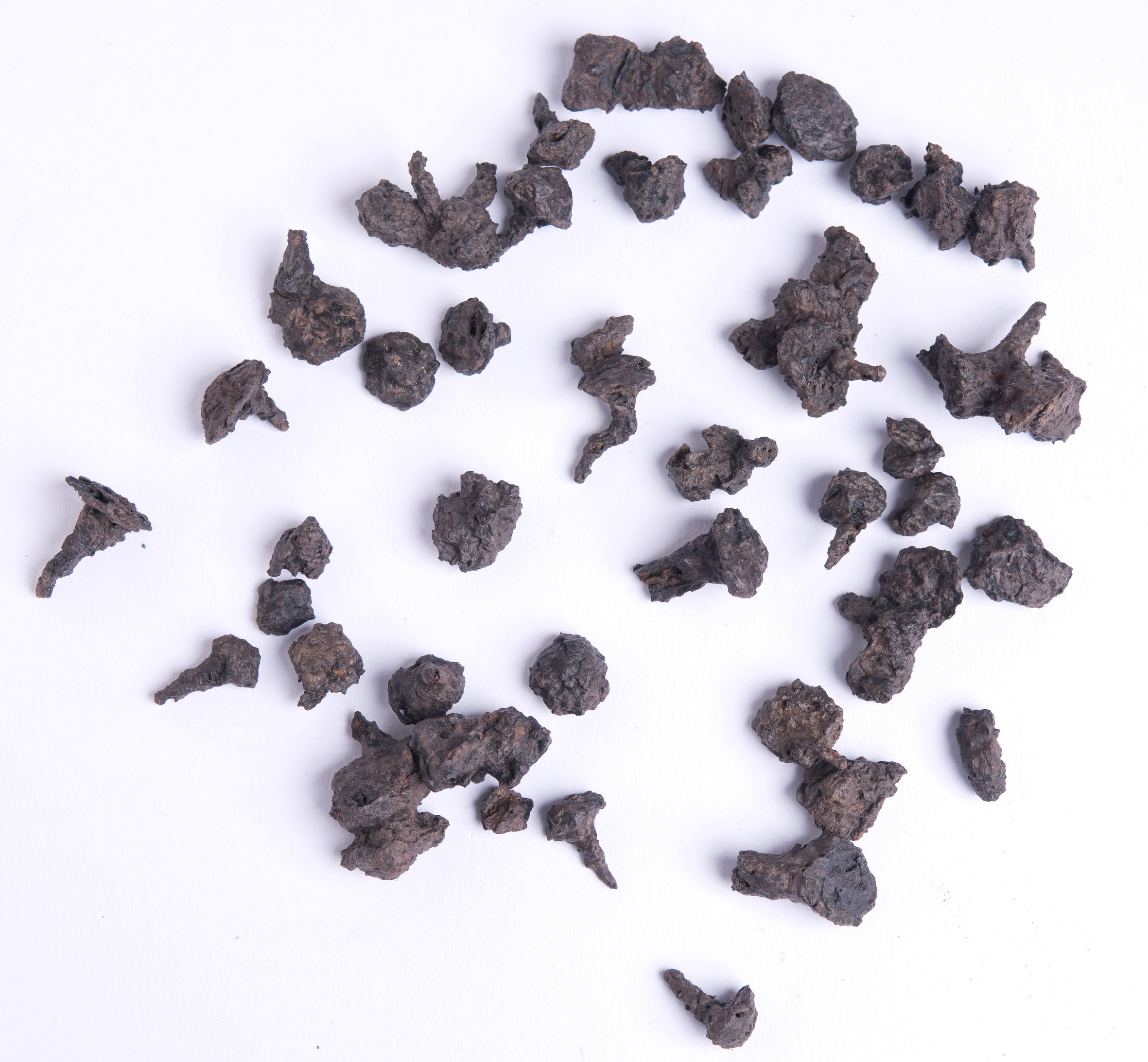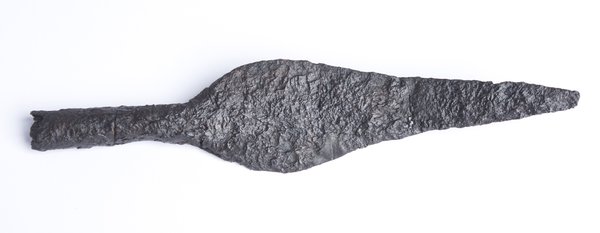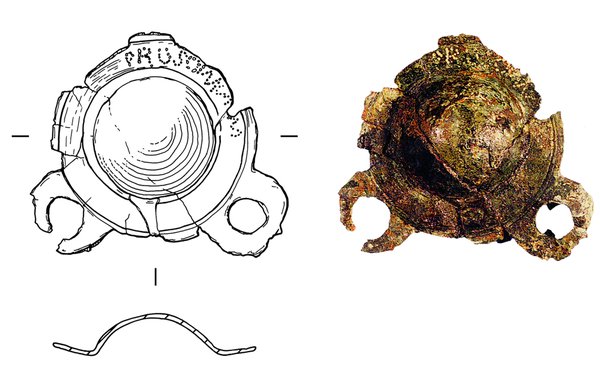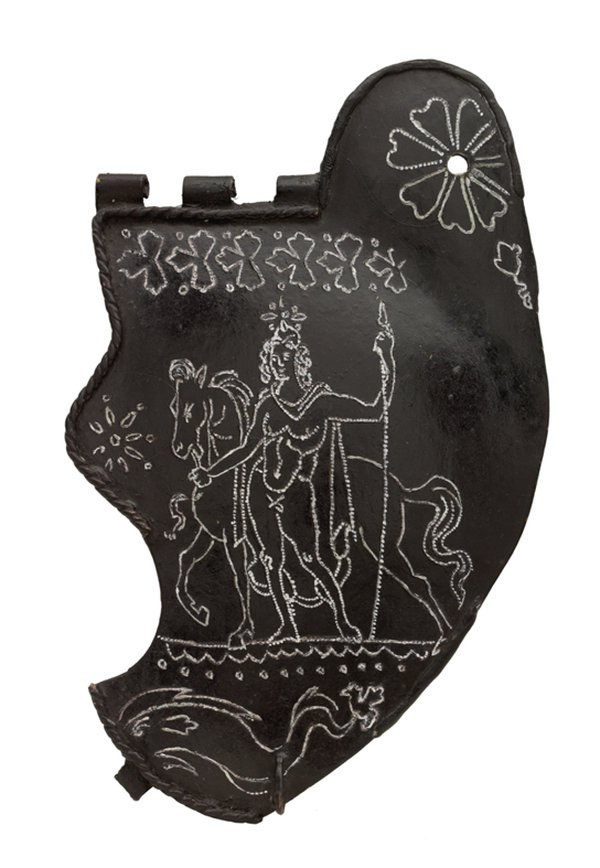Week 4: The soldiers at Segedunum
The Soldiers at Segedunum
We have a number of objects in our collections which represent the Auxiliary soldiers who lived at Segedunum for approximately 290 years. Find out about these objects below and take part in activities that bring them to life.
From our collections

Hobnails These are small iron nails hammered into the sole of leather boots and shoes to make them last longer, iron being harder than leather.

Iron Spearhead This was attached to a wooden pole 2m long. This was the main weapon used by Roman soldiers. It was held in one hand while the soldier held his shield in the other.

Piece of horse harness with a stamped
inscription by a cavalry soldier
The surviving letters read: T PRVSOIANA MARC [for ‘turma Prusoniana
Marc]‘. Soldiers often identified themselves by the name of their
century, or, in the case of cavalry, their turma (a unit of 30
cavalrymen). So here a soldier called Marc… (his full name is
unfortunately lost) comes from the turma formerly led by Pruso. This
means that Pruso used to be the decurion in charge of the turma but
has moved to a different unit, or has retired or died, but a new
decurion has not yet been appointed.

Replica
helmet cheek piece from Arbeia. The original is held at Great North Museum
This
was found in the River Tyne, near South Shields. It shows one of the
Holy Twins, Castor and Pollux, who were legionary horsemen and heroes
(and so would appeal to cavalrymen) – the matching twin would be on
the other cheekpiece. The cheekpiece has been cut down for a new
owner – the dolphin’s snout has been cut off, and the flower over
the ear covering trimmed.
Legionary and Auxiliary Soldiers
The Roman Army was divided into two different elements: the Auxiliaries and Legionaries.
Legionary soldiers were at Segedunum only while they built the Wall and fort (perhaps two or three years). Legionary soldiers therefore had very little to do with life in the fort, apart from the original construction.
Auxiliary soldiers lived here for approximately 290 years. The Auxiliary unit at Segedunum was formed of a mixed cavalry (horsemen) and infantry (foot soldiers) unit. This unit would have been around 480 infantry soldiers and 120 cavalry soldiers. For most of its history, the soldiers living at Segedunum were from the Fourth Cohort of Lingones from Germania Superior (Eastern France).
Download more information about how the Auxiliary and Legionary units were organised and find out what the different units wore below.
The challenges
Artist Simon Terry has drawn pictures of the soldiers who lived at Segedunum during the time of Emperor Hadrian.
Download copies of these drawings below, as well as an Infantry Auxiliary soldier paper doll.
Challenge 1
Have a go at colouring them in and making your very own Infantry Auxiliary Soldier Paper Doll.
Auxiliary and Legionary Soldier colouring sheets
Cavalry Auxiliary Soldier colouring sheet
Infantry Auxiliary soldier paper doll
Challenge 2
Why not challenge yourself further by creating your own 3D Roman soldier characters (which can be added to your very own model fort in week 6 of Marvellous Mondays).
To make your 3D Roman soldier characters, you could use:
- Modelling clay or Play-Doh
- Toilet roll or kitchen rolls
- Card/paper
- Pens, crayons, paint
- Glue, scissors and tape




